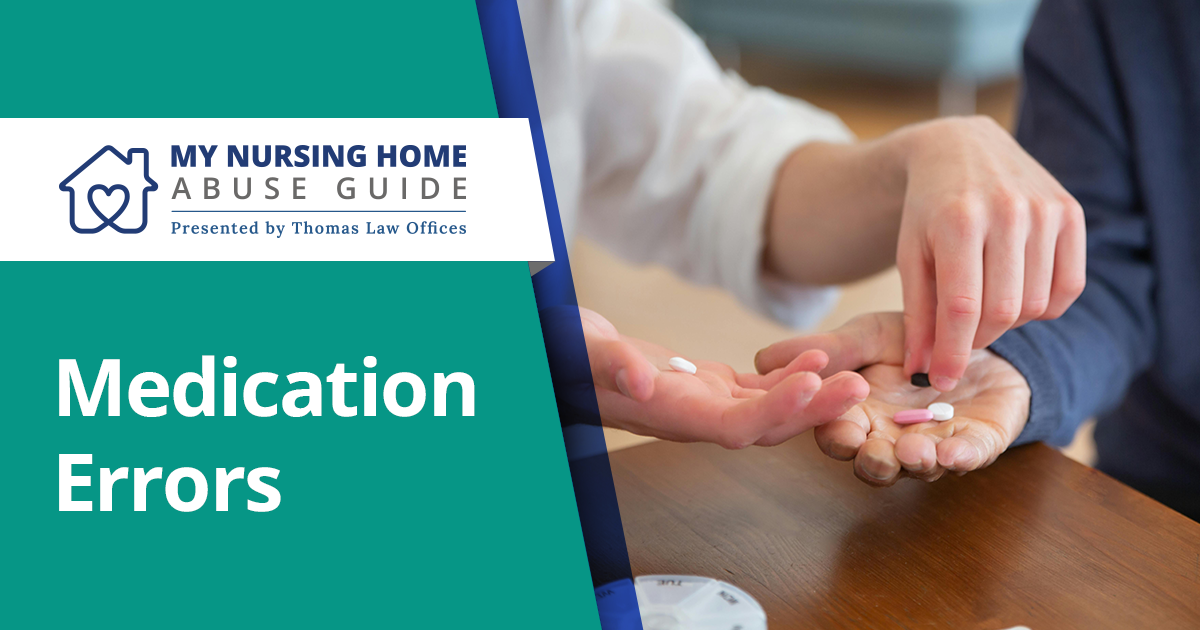Your Guide to Nursing Home Abuse & Prevention
Millions of elderly adults live in nursing home facilities.
Every one of them deserves to feel safe, protected, and respected.
Millions of elderly adults live in nursing home facilities.
Every one of them deserves to feel safe, protected, and respected.

Some online estimates suggest that as many as several thousand patients in the United States have to deal with medication errors and their consequences every year. While it’s unclear as to what percentage of that population resides in assisted living facilities, it’s likely that a decent amount does. Medication errors in nursing homes are an issue for many reasons we’ll outline below, along with a listing of who makes these mistakes and ways they can be prevented.
The possibilities are, unfortunately, endless in terms of potential errors healthcare professionals or nursing home employees may make when interacting with residents at these facilities. Some of the common mistakes these caregivers or providers make include:
In terms of the first point above, a study published by the National Library of Medicine outlines how at least 50% of medication errors occur during the prescribing/ordering phase.
While your initial inclination may be to assume that you or a family member’s direct caregiver at the nursing home is responsible for a drug error, and that certainly is who’s responsible in many cases, it’s not the only person who might be. Instead, the following parties may also be responsible for medication-related issues that occur involving residents:
It’s also not out of the question for fellow residents, friends and family members, support staff, outside vendors, and others with any access to nursing home residents to tamper with medications or administer an over-the-counter, prescribed, or illicit drug that can adversely impact their health and take their life.
Residents who have their cognitive functioning intact and are vocal in advocating for themselves or who are regularly surrounded by supportive family members or friends are the ones least likely to fall victim to drug errors. Why? It comes down to them being a lot more proactive when it comes to doing all the things they tell you to do to avoid having something like this happen to them.
Steps to take to minimize the chances of a medication mistake happening on your watch include:
While not every adverse reaction to a drug may be avoidable, instances like this may be a strong indicator of nursing home neglect. Being on top of your care can greatly minimize the chances of medication errors in nursing homes.
This website was created and is maintained by the legal team at Thomas Law Offices. Our attorneys are experienced in a wide variety of nursing home abuse and neglect cases and represent clients on a nationwide level. Call us or fill out the form to the right to tell us about your potential case. We will get back to you as quickly as possible.
866-351-2504